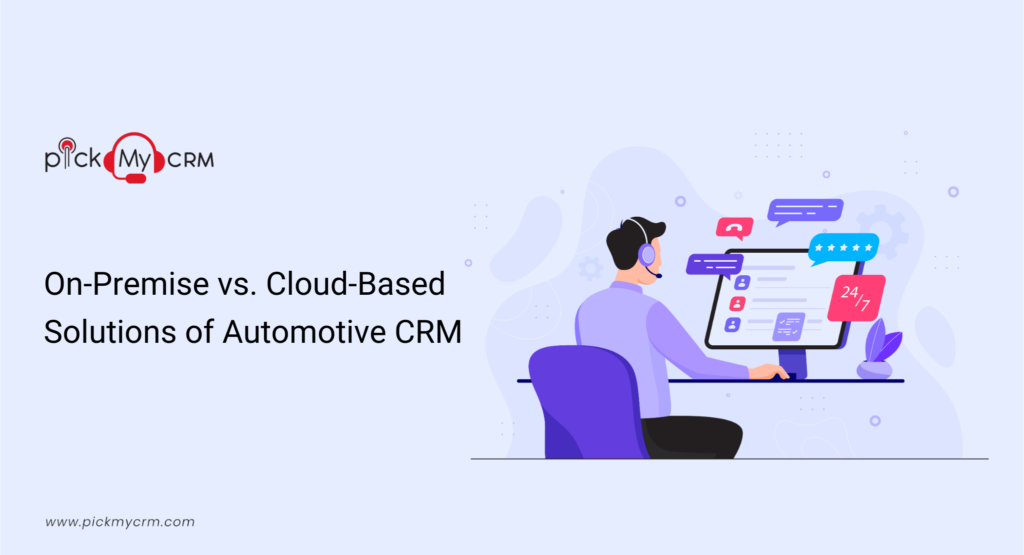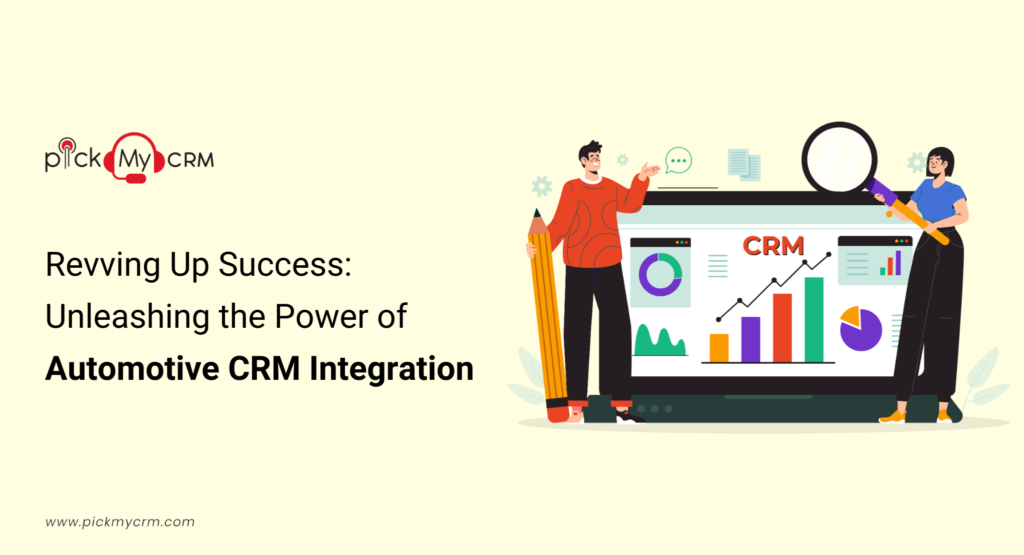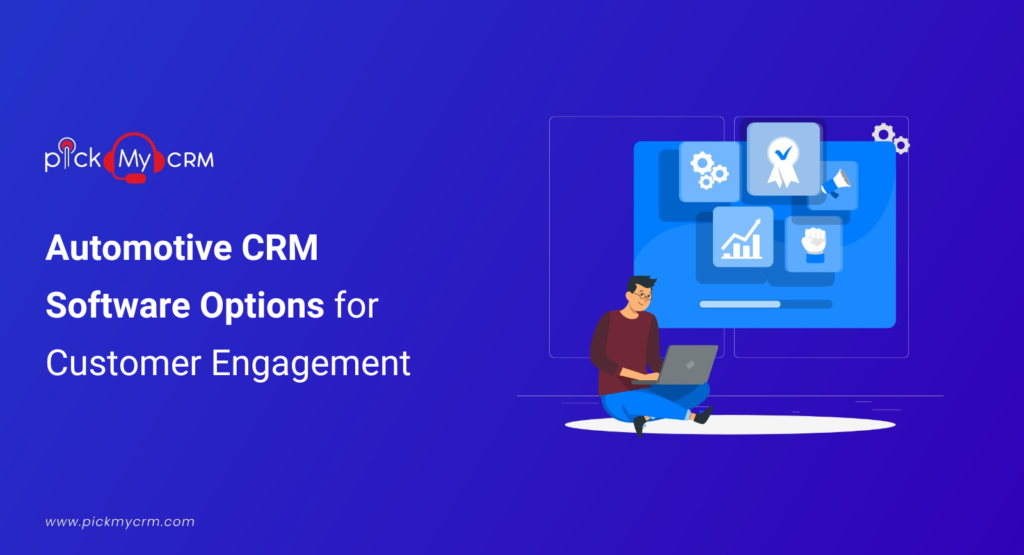On-Premise vs. Cloud-Based Solutions of Automotive CRM
Understanding On-Premise Solutions
On-premise CRM solutions involve hosting the software and infrastructure within the organization's physical premises. This approach offers several advantages tailored to the automotive sector's unique demands,- Data Control and Security: On-premise CRM solutions provide businesses with direct control over their data. Sensitive customer information remains within the organization's infrastructure, minimizing the risk of data breaches and unauthorized access.
- Customization and Tailoring: Automotive workflows can be intricate and diverse. On-premise CRM allows businesses to customize features and functionalities to align with their specific processes, enhancing efficiency and customer experiences.
- Compliance Adherence: The automotive industry operates under stringent data protection regulations. On-premise CRM empowers businesses to align with industry-specific regulations, Ensuring customer data management aligns with legal mandates.
- Predictable Costs: While the initial investment in hardware and software may be high, On-Premise CRM solutions offer cost predictability over time. Businesses avoid variable recurring subscription fees based on usage fluctuations.
- Offline Access: On-premise CRM remains operational even without internet connectivity, a crucial benefit for dealerships or sales representatives working in regions with unreliable connections.
- High Upfront Costs: Implementing On-Premise CRM demands a substantial initial investment. The expenses include procuring hardware, infrastructure setup, software licenses, and potentially hiring specialized IT personnel.
- Maintenance Burden: On-premise CRM requires ongoing maintenance, software updates, security patches, and troubleshooting. Businesses must allocate resources and time to handle these tasks, potentially diverting attention from core operations.
- Limited Scalability: With business expansion, On-Premise solutions could face challenges in Handling escalating data loads. Scaling up hardware and infrastructure can be complex and time-consuming.
- Resource Dependency: In-house IT expertise is essential to manage the complexities of On-Premise CRM. This dependence on skilled personnel can lead to challenges in finding, training, and retaining Skilled IT professionals.
- Data Security and Compliance: While On-Premise solutions offer more direct control over data security, maintaining compliance with evolving industry regulations and security standards requires continuous effort and vigilance.
Embracing Cloud-Based Solutions
Cloud-based CRM solutions, on the other hand, leverage remote servers and online platforms to deliver CRM services. For the automotive sector, this approach offers distinct advantages,- Scalability and Flexibility: Cloud-based CRM solutions excel in scalability, effortlessly handling fluctuations in data loads. It is particularly advantageous for the automotive sector, where demand can vary seasonally or due to marketing campaigns.
- Accessibility and Mobility: Cloud-based CRM solutions enable remote teams, dealerships, and employees on the move to access critical customer data from anywhere, fostering collaboration and timely decision-making.
- Integration Capabilities: In the automotive industry, businesses frequently utilize various digital tools, ranging from marketing automation to analytics platforms. Cloud-Based CRM seamlessly integrates with these tools, streamlining operations and eliminating data silos.
- Automatic Updates and Maintenance: Cloud-based solutions automatically handle software updates, security patches, and maintenance. It eliminates the need for in-house IT resources to manage these tasks, allowing businesses to focus on core operations.
- Cost-Efficiency: Cloud-based solutions typically involve lower initial costs compared to On-Premise solutions. Subscription-based pricing models spread costs over time, making them suitable for businesses with budget constraints.
- Data Security Concerns: Cloud-based CRM relies on third-party providers for data storage and security. Businesses must thoroughly assess the provider's security measures and protocols to ensure the safety of sensitive customer information.
- Internet Dependency: Cloud-based solutions are reliant on consistent and reliable internet connectivity. Operational disruptions due to downtime or sluggish connections can result in potential losses of customer interactions and sales opportunities.
- Vendor Lock-In: Transferring data between cloud providers can pose challenges due to variations in platforms and data formats. This vendor lock-in can limit flexibility and hinder a business's ability to switch providers if needed.
- Data Privacy Regulations: Businesses might have to navigate intricate data protection and privacy regulations that differ across regions, contingent on the geographical location of the cloud servers.
- Cost Predictability: Although Cloud-Based solutions frequently present subscription-based pricing, these costs have the potential to accrue gradually. Unexpected usage spikes or changes in subscription models can impact budget predictability.




